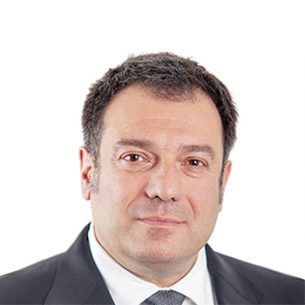Partners Bambos Tsiattalou, Maria Theodoulou and Richard Cannon analyse recent developments in corporate and cryptocurrency fraud in the Fraud & White-Collar Crime Expert Guide 2022.
Bambos, Maria and Richard’s articles were published in the Fraud & White Collar Crime Expert Guide 2022, 1 September 2022. Their analysis of corporate fraud can be found here, and their examination of cryptocurrency-related crime can be found here.
Down to the Wire: An Analysis of Recent Corporate Fraud Developments
Two former corporate stars have been making headlines again thanks to huge commercial fraud cases that eventually resulted from their sudden demise: the insolvent German payment processor Wirecard, a short-lived DAX 30 index constituent, and US med tech start-up Theranos, which was once valued at nearly $10 billion. Three individuals face prosecution in Munich over fraud and false accounting in relation to Wirecard while Ramesh “Sunny” Balwani, the former president and COO of Theranos, has recently been convicted of conspiracy to defraud investors and wire fraud by a jury in San Jose, California.
Together, these two prosecutions on different continents offer a salutary tale of our times, exemplifying a common phenomenon that is becoming increasingly prevalent: start-up companies that grow very rapidly to achieve multi-billion-dollar status, only to crash and burn following revelations of deception, misrepresentation and fraud on an industrial scale.
The Wirecard story has shaken Germany to such a degree that Deutsche Boerse has had to toughen up its membership criteria for inclusion on the DAX 40, which superseded the DAX 30 last September. It was only in 2018 that Wirecard became a DAX 30 constituent valued at €24 billion.
But by June 2020, thanks to exhaustive investigations over several years by the Financial Times and the newspaper’s repeated publication of whistleblower allegations, Wirecard was eventually forced to make serious admissions that sealed its fate: around half of its stated revenues and €1.9 billion of company cash linked to third party acquiring business (TPA) held in Asian escrow accounts did not exist. A German criminal investigation began on 22 June 2020; three days later, Wirecard filed for bankruptcy.
Wirecard’s former CEO Markus Braun now faces a range of criminal charges: fraud, misappropriation of company assets, balance sheet falsification and manipulation of the company’s share price. He denies all wrongdoing and will be tried later this year. His two co-accused are Wirecard’s former chief accountant Stephan von Erffa and the director of its Dubai subsidiary Oliver Bellenhaus.
Von Erffa has also been charged with fraud, breach of trust and market manipulation. German police investigations found evidence that he forged documents, which were subsequently shared with KPMG and EY, linked to a €50 million payment that Wirecard had received in 2018. These funds were wired at von Erffa’s request using a private computer to create a backdated email and a fictitious €50 million “escrow request/authorisation form.”
According to the Financial Times, von Erffa has since admitted to forging specific documents during a special audit by KPMG, but with one caveat: the fabricated payment authorisation was an isolated event. That makes him the first senior Wirecard executive to admit criminal behaviour since July 2020 when Bellenhaus turned himself in to the German authorities and is now chief witness for the prosecution.
For several years, Theranos was a much-heralded health tech company that claimed to have revolutionized blood testing using methods that needed only minute volumes of blood and could be performed rapidly, thanks to small automated devices developed by Theranos. Founded in 2003 by the then 19-year-old Elizabeth Holmes, and assisted by her boyfriend Ramesh “Sunny” Balwani, Theranos really began to take off after Balwani joined the company as COO in 2009.
Theranos raised more than $700 million in venture capital culminating in a $10 billon valuation by 2013/14. But in 2015, professor John Ioannidis and The Wall Street Journal questioned the validity of the Theranos technology. The U.S. Securities and Exchange Commission (SEC) and the Centers for Medicare and Medicaid Services (CMS) launched investigations and the company was eventually dissolved in September 2018.
In June 2018, following a two-year investigation by the US Attorney’s Office for the Northern District of California, a federal grand jury indicted Holmes and Balwani on nine counts of wire fraud and two counts of conspiracy to commit wire fraud. The victims comprised both investors and patients. The claims made about Theranos blood tests and the company’s testing devices, which proved to be false were central to these charges.
After giving birth to a son in July 2021, Holmes began her trial the following month. It ended in January 2022. Giving evidence, she accused Balwani of abuse and manipulation. Although she was convicted of four counts of defrauding investors, Homes was found not guilty of defrauding patients. She is scheduled to be sentenced in October 2022 and faces up to 20 years in federal prison. The New York Times reported that the case “came to symbolize the pitfalls of Silicon Valley’s culture of hustle, hype and greed.”
Balwani’s trial began in March 2022 and in July, he too was convicted of deceiving investors as part of a plot with his by then ex-girlfriend, Holmes. Both of them had falsely and repeatedly claimed that Theranos devices could detect multiple diseases with only a few drops of blood.
It is self-evident that investors should always ask questions, carefully evaluating the track record of a company’s management team and the products or services that they sell. Among the many lessons to be learned from the large-scale fraud at Wirecard and Theranos, these would appear to be a good starting point. Put simply: caveat emptor.
Arguably, more serious questions arise for regulators and for the professional advisers involved about how such sustained levels of deception were ever possible. No doubt we will learn more about this in due course. The details may prove invaluable in preventing similar frauds from arising in future.
Cryptocurrency: Financial Game Changer or Gateway to Fraud?
Cryptocurrencies are now firmly established as the new asset class of choice, especially among younger investors who are attracted by the dream of the high returns from being on the right side of its volatility. But they have also become synonymous with fraud. Last year, crypto fraudsters swindled more than £150m from their British victims while UK digital crime rose by more than 30 per cent compared to 2020, according to Action Fraud. In May, NatWest CEO Alison Rose said that Britain faces a ‘pandemic’ of fraud as the bank tries to combat a wave of crypto-related investment scams.
This year has been characterised by a protracted crypto winter with falling values fuelling a further increase in levels of crypto fraud. A Reuters investigation published last month claims that Binance, the world’s largest crypto exchange, is a “hub for hackers, fraudsters and drug traffickers” which has “served as a conduit for the laundering of at least $2.35bn in illicit funds,” over the past five years.
The misuse of cryptocurrencies to facilitate illicit payments has become subject to even greater scrutiny, particularly since crypto operates in a largely unregulated space. According to a 2022 Europol report, criminal networks that specialise in large-scale money laundering “have adopted cryptocurrencies and are offering their services to other criminals”.
Gary Cathcart, head of financial investigation at the National Crime Agency (NCA), recently told the BBC: “There are parts of the cryptocurrency structure that are being exploited to launder criminal cash, particularly from drug dealing. The growing menace of ransomware also utilises cryptocurrencies as its payment mechanism.” The Reuters investigation into Binance further revealed that between 2017 and 2022 the exchange made and received crypto payments worth $780m related to the financing of illegal drugs.
Hired by US government agencies to track illegal flows of money, crypto researcher Chainalysis concluded in a 2020 report that Binance had received $770m of criminal funds in 2019 alone. Across all exchanges, criminals received a record $14bn in cryptocurrencies and laundered $8.6bn of cryptocurrency in 2021, up 30% year-on-year according to Chainalysis’s latest report published in January.
This noted that “while billions of dollars’ worth of cryptocurrency moves from illicit addresses every year, most of it ends up at a surprisingly small group of services, many of which appear purpose-built for money laundering”. It concluded that: “Law enforcement can strike a huge blow against cryptocurrency-based crime and significantly hamper criminals’ ability to access their digital assets by disrupting these services.”
To date, global regulators have been long on rhetoric, but somewhat short on regulation. The Financial Conduct Authority (FCA) and the Bank of England have both cautioned investors using uncharacteristically strong language to help them understand fraud, hacking, and money laundering risks. In the US, Treasury Secretary Janet Yellen has repeatedly questioned the legitimacy and stability of cryptocurrencies and suggested that an appropriate regulatory framework should be implemented.
Notwithstanding these siren voices, bespoke crypto regulation has not yet been put in place on either side of the Atlantic, leaving an unclear regulatory position that does nothing to prevent cryptocurrency being used for criminal purposes.
But regulation may soon be on the way. In July, the FCA’s chief executive Nikhil Rathi signalled his intention to strengthen cross-border crypto-asset regulation. In a speech given to a Washington DC conference, Rathi told delegates that the US and the UK had “agreed to deepen ties” on financial innovation and were “exchanging views on crypto-asset regulation and market developments.”
According to the Reuters investigation, police officers and lawyers have told them it is harder for fraud victims to recover lost funds when they pass through a crypto exchange. But in a demonstration of pragmatic flexibility the courts have been quick to adjust, dealing with this situation expeditiously by adapting the current laws of England & Wales.
At a recent interim relief hearing in the High Court, Mr Justice Trower delivered a landmark judgment which stated that cryptocurrency exchanges could be served with legal papers. This grants the right to serve these papers on unidentified fraudsters who are connected with digital wallets over the blockchain by NFT, relating to £2m of misappropriated cryptocurrency: roughly £1.8m worth of Tether and £190,000 of USD Coin.
It is the first time that any court in Europe has given permission to serve court proceedings on unknown fraudsters via a non-fungible token (NFT), and only the second time that such an order has been granted globally; the first having been made by the Supreme Court of New York in June. Given the absence of specific crypto regulation, the innovative approach taken by the UK courts does at least provide some confidence until more substantive regulation is available.
The US Securities and Exchange Commission (SEC), arguably the world’s leading regulator, recently announced plans to combat crypto fraud by hiring a raft of specialist employees who will be responsible for protecting crypto investors against cyber-attacks and scams. In trying to restrict criminals’ use of crypto, regulatory bodies elsewhere have been endeavouring to apply control measures using current laws and regulations. Many regulations are being continuously updated in an attempt to counter complex money-laundering techniques and dynamic technological evolution.
But will this be enough. Effective combatting of crypto-related crime will ultimately require a step change in the scope and scale of crypto-specific regulation underpinned by significant multi-jurisdictional co-operation. But it is far from certain that all international key players will fully sign up to the cause. The disruptive nature of crypto to the established international financial system can be attractive to nations whose agenda is not in line with the traditional system. Given the borderless nature of the blockchain this means regulation by major nations might just be sidestepped.
There’s a long road ahead.





